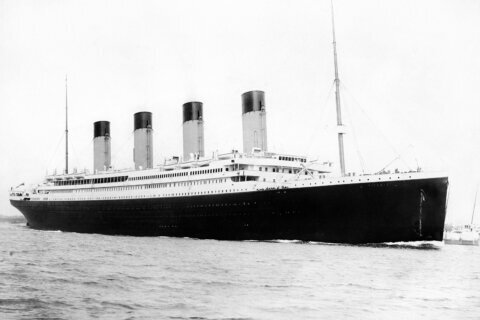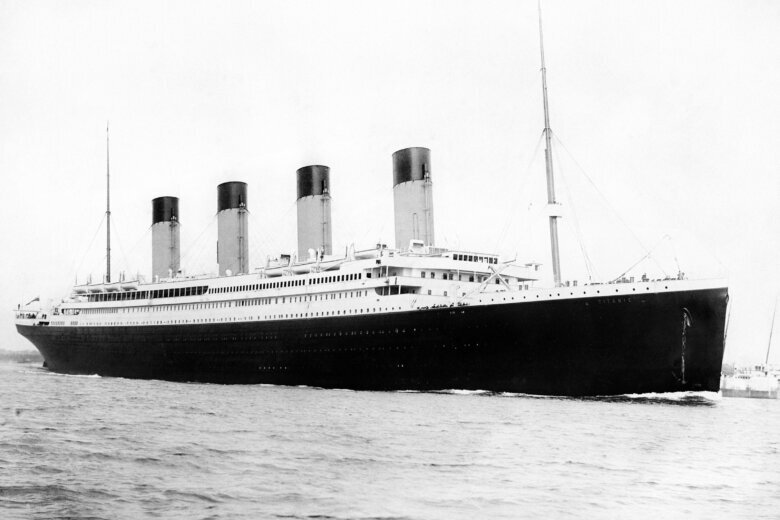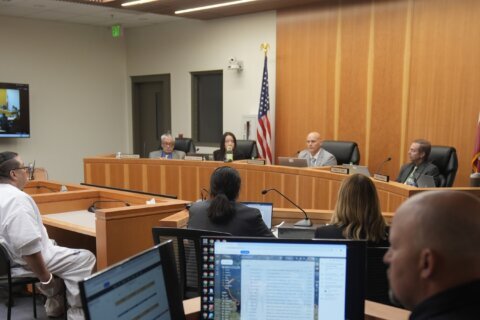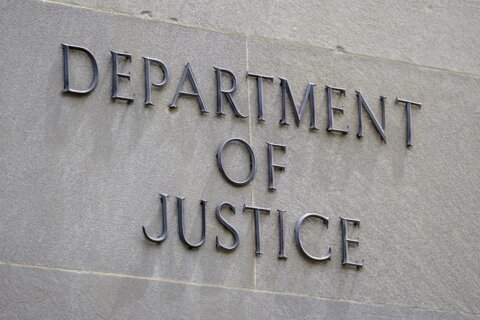
New York (CNN) — The massive cargo ship crash that destroyed the Baltimore’s Francis Scott Key Bridge on Tuesday will probably cost various shipping companies and insurers billions of dollars in damages. But lawyers, legislators and business owners will need to turn to one of the oldest subjects of law to figure out who owes what.
That’s because it all comes down to maritime law – an ancient, often seemingly eccentric legal field that still relies on some precedents set in the Iron Age.
“Maritime law is steeped in antiquity. it goes back to the Phoenicians, it goes back to the Greeks,” Sean Pribyl, a partner at the law firm Holland & Knight, said in an interview with CNN.
Maritime law is rooted in the need to settle disputes and enforce rules between different peoples, even before there was the concept of countries with definitive laws.
“It’s been thousands of years of vessels going to sea and carrying cargo or passengers. Over centuries and centuries of practice, maritime law developed its own codes, and those were enshrined in more recent international conventions and then domestic laws as well around the world,” said Pribyl.
From ancient Mediterranean islands to the Titanic to longshoremen on the Brooklyn docks, CNN looked into some of the historic cases that may become relevant as the ramifications of this deadly and costly crash come to light.
Ancient history
About 3,000 years ago, primeval lawmakers on the seafaring island of Rhodes faced a conundrum.
Back in 1000 BCE, Rhodians were dominating the Mediterranean with their fast-moving ships and bringing boatloads of riches back to their island. But not every voyage went as-planned – if the seas were rough, crews would sometimes have to ditch their valuable cargo to lighten their load and keep the ship afloat.
The problem was that the crews often couldn’t decide whose goods to throw overboard into the water below. They could fight viciously over it, wasting the small window of time they had to save the boat and themselves. Maybe they should lose the olive oil, or the wine, or the fine cloth.
But why should the oil merchant, or the wine merchant, or the cloth merchant have to suffer on their own for a decision made by the crew?
So the wise legislators came to a solution – a remedy would go on to guide maritime law for millenia, eventually making its way to modern-day Baltimore, where it could play a role in the monetary ramifications of the collapsed Francis Scott Key Bridge.
All of the merchants in ancient Rhodes who saw their cargo arrive safely ashore would contribute an appropriate portion of their earnings to compensate the merchants who lost their haul.
In modern terms, if some cargo must be thrown over the side, the losses are borne by everybody who had cargo onboard, equally.
That rule, known as general average, is still a guiding principle of maritime law. These days, it can also extend to costs related to repairs and other expenses said Pribyl, who co-authored the American Bar Associations chapter on General Average in its Damages book.
That means the costs of damage to the ship and lost cargo in Baltimore could be split between the ship owner and the merchants with items on the ship.
Thankfully, they have insurance.
The law used by the owners of the Titanic
Another archaic principle, the Limitation of Liability Act of 1851, could come into play when deciding who is responsible for paying what sort of compensation for the Baltimore incident.
The law was first intended to aid US merchant marines and ensure American shipowners could compete equally with those from leading seafaring nations like Great Britain. It allowed shipowners to limit their financial liability to simply the value of their vessel plus the cargo after a loss, as long as they could prove they didn’t know of a problem beforehand, protecting them in various incidents.
But then the owners of the Titanic cleverly used it to limit their own liabilities in the wake of the supposedly “unsinkable” ship’s sinking in 1912.
The White Star Line, the company that owned the ship, invoked the act and asked courts to limit the compensation it would have to pay to survivors and the relatives of those who perished in the ship. They argued that they should only have to pay for the value of the remaining lifeboats and their freight, which was a fraction of the total claims for loss of life, personal injury, and lost cargo.
The legal action also required all claims against the company to be heard in a specific court. It effectively consolidated all lawsuits against the company into a single proceeding.
So, despite hundreds of claims seeking more than $16 million in damages, White Star ended up paying just $664,000 in a settlement.
That’s why this legal tenet is known colloquially as the “Titanic” Law.
Since then, plenty of other shipowners have evoked the rule in their own cases.
“it’s just a fundamental part of the way that the shipping business works,” said Martin Davies, director of the Maritime Law Center at Tulane University. “If something really bad happens, the ship owner can petition to limit its liability.”
Davies told CNN that he would be “amazed” if the owners of the Dali ship in Baltimore, Singapore-based Grace Ocean Private, “don’t go and petition for limitation within a few weeks.”
A Brooklyn tale
Companies impacted by the Baltimore bridge’s collapse may have trouble if they seek compensation for lost business, too. That’s because of a 1927 Supreme Court Case, Robins Dry Dock v. Flint.
The case involved a dispute arising from an incident where the Brooklyn-based Robins Dry Dock & Repair Company negligently damaged a ship’s propeller that was being repaired. The ship was under a charter from its owners to Flint & Co.
Because of the damage, the ship was out of commission for a period of time. Flint & Co., despite not outright owning the ship, still lost money as the ship now needed more time to be fixed.
The case determined that a pure economic loss was not recoverable from the ship’s owners and operators in the absence of physical injury or a relevant clause in a contract that was agreed upon in advance.
That could mean that in Baltimore, “all the business interruption losses, which will be significant, will not be recoverable from the ship,” said Davies.
Chugging along
Some may find it strange that a group of men from the cusp of the Iron Age are still dictating modern law, but maritime lawyers are used to it.
America’s forefathers even referenced this ancient code of law when writing the US Constitution, and both the Supreme Court and federal laws have validated this archaic legal framework, incorporating it into federal legislation.
Which means that the “no rules in international waters” trope that has become a fixture of American media, which depicts a world where crimes in the high seas go unpunished or where ship captains are granted broad legal powers, isn’t exactly accurate.
In reality, said Davies, the law is pretty clear, well-established and possibly even boring.
“Maritime law chugs along in the background, and then some kind of catastrophe happens and people realize there’s this different body of law, very different from what applies on land,” said Davies. “And then they have to find out what it is.”
The-CNN-Wire
™ & © 2024 Cable News Network, Inc., a Warner Bros. Discovery Company. All rights reserved.








